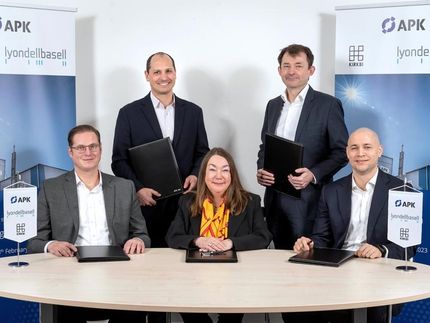ExxonMobil Chemical Licenses Polyethylene Technology in Thailand
Advertisement
ExxonMobil Chemical Company announced that Thai polyethylene (1993) Co., Ltd.(TPE) has agreed to license ExxonMobil Chemical's high pressure low density polyethylene (LDPE ) process technology to retrofit Thai Polyethylene's existing autoclave reactor located in Map Ta Phut, Thailand.
ExxonMobil Chemical will provide technology to debottleneck the existing Thai Polyethylene reactor beyond its current capacity of 90 thousand tons per year (KTA), improve product quality, and expand the grade slate, including the addition of ethylene vinyl acetate copolymer (EVA). The current TPE reactor is based on ICI process technology and is designed to produce homopolymer products.
As part of the retrofit license, TPE personnel will be trained at ExxonMobil Chemical facilities and receive advice on plant operations, maintenance, and design considerations related to ExxonMobil Chemical's high pressure polyethylene autoclave process. ExxonMobil Chemical has four licensees in Asia using its high-pressure polyethylene technology.
"This retrofit license will help TPE improve its plant economics and produce quality products to meet the growing demand for LDPE products in Asia," said Gary Schmidt, Global Polymers Licensing Manager, ExxonMobil Chemical Company. "The success of this retrofit license will open a new avenue for other LDPE manufacturers to improve their existing high pressure LDPE plants around the world."
Topics
Organizations
Other news from the department business & finance

Get the chemical industry in your inbox
By submitting this form you agree that LUMITOS AG will send you the newsletter(s) selected above by email. Your data will not be passed on to third parties. Your data will be stored and processed in accordance with our data protection regulations. LUMITOS may contact you by email for the purpose of advertising or market and opinion surveys. You can revoke your consent at any time without giving reasons to LUMITOS AG, Ernst-Augustin-Str. 2, 12489 Berlin, Germany or by e-mail at revoke@lumitos.com with effect for the future. In addition, each email contains a link to unsubscribe from the corresponding newsletter.






















































